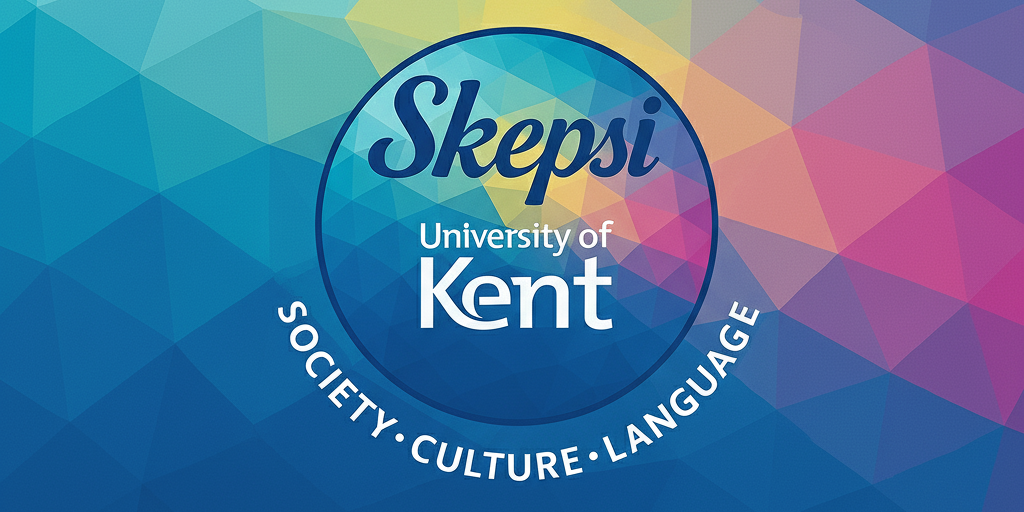Log In
Making Sense of Social Networks
Skepsi’s Fourth Annual Multi-disciplinary Conference
University of Kent
Friday, 27 May 2011
At the threshold of the twenty-first century, people all over the world were getting used to the notion of email, which soon came to replace, almost completely, the more traditional pen and paper. At the same time, the virtual spaces of chat rooms and instant messaging applications were establishing themselves as new means of socialisation. Now a decade has passed and email and IM clients are already becoming obsolete, overcome by the spread of social networks. What has the social network come to replace? What would be the real-life equivalent of a social network? In a matter of seconds, with a single click on Facebook, our bewildered faces can reach not just the other side of the world, as was the case with e-mail, but millions of people, all together, all at the same time. On 26 June 2009, the Iranian authorities blocked the international press from operating openly in Iran. The Iranian people relied on Twitter to narrate their struggle to the outside world. Information no longer simply travels quickly; it instantaneously and effortlessly reaches billions of people.
But these situations are, of course, not enough to encompass the totality of the social network phenomenon: along with the massive circulation of information, something else is filtering into the form of social networking. Massively Multiplayer Online Role Playing Games, or MMORPGs, now gather together tens of thousands of people who meet in a virtual environment with their avatars, virtual copies of themselves, not simply to socialise in the strict sense of the term but to create new narratives, build a different world, defeat a lingering evil and abide by new physical and moral rules: all from the safe environment of their own desks.
Although social networks and the Internet have been explored by a variety of disciplines, few in the Humanities have ventured into the virtual world. The international and interdisciplinary conference Log In aspires to make up for this gap, by inviting speakers from all disciplines in the Humanities and Social Sciences to send their proposals investigating any of the following themes (the list is neither prescriptive nor exhaustive):
- · What new forms of narrative do social networks create? Which narratological instruments are to be used to analyse these new forms of writing (e.g. novels written on Twitter, autobiographies in blogs)? How does interactivity in online gaming impact on the relationship of readers with narrative? Does it influence writers?
- · Do social networks influence the average perception of the old media (such as the written words, photography, cinema, etc.)? How do social networks influence the other media?
- · How does the identity of people change when facing the fragmentation of the multiple online avatars that one can assume? Are people alienating themselves in their online identities? Can this teach us anything about the non-virtual world?
- · What are the new forms of morality and ethics that social networks create? Do they influence the non-virtual world? What is the political impact of social networks?
- · What are the ‘post-human’ implications entailed in the hyper-reality of the virtual world?
- · Photographers without a studio, cinematographers without a producer, journalists with no censorship, authors with no publisher: how do social networks allow us to bypass the conventional social and economic rules?
The theme of the conference is interdisciplinary, so proposals may be submitted for papers in any area of the humanities, such as (the list is neither prescriptive nor exhaustive):
—Continental Philosophy
—Film Studies, Drama and Visual Arts
—Comparative Literary Studies and Literature
—Gender Studies
—Aesthetics
—Analytical Philosophy and Philosophy of Language
—Modern Languages and Linguistics
—Sociology
Abstract proposals (approximately 300 words) should be sent as a Word attachment to the conference organising committee at: login2011@kent.ac.uk.
The email should include the name of the author, institution and brief biographical details. You should also indicate on your proposal any audiovisual requirements you may have.
The EXTENDED deadline for submission of abstracts is 31st March 2011.
Speakers will be invited to submit their papers to be considered for publication in the seventh issue (due Winter 2011) of Skepsi, the Interdisciplinary Online Journal of the University of Kent.
http://blogs.kent.ac.uk/skepsi/


1 ping
[…] Networks, Skepsi‘s fourth annual conference has been extended to 31st March 2011. Click HERE for the full call for papers. Share and […]